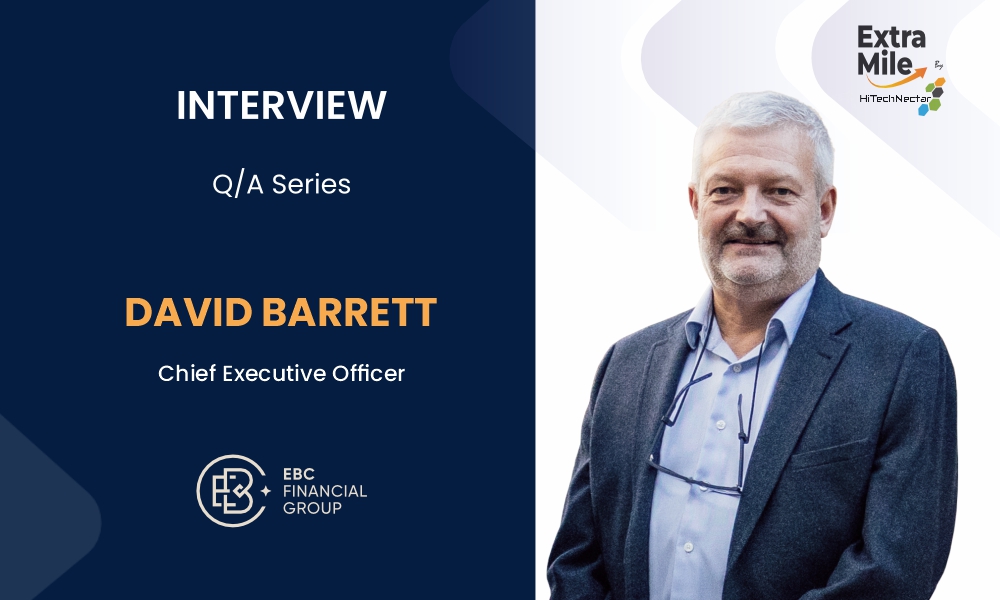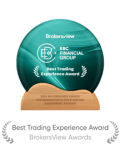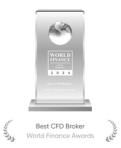Welcome to another session of ExtraMile by HiTechNectar, an exclusive interview series with top industry players discussing the latest technology, innovation, marketing practices, tech trends, expert insights, and a lot more.
Today, we are thrilled to have a conversation with David Barrett, Chief Executive Officer of EBC Financial Group (UK) Ltd. a global brokerage and asset management firm known for its commitment to trust, compliance, and client-focused innovation. With nearly 40 years in finance, David has performed different roles at AIG, Nomura, and Credit Lyonnais. He brings a wealth of experience in navigating market shifts, regulatory hurdles, and the rise of AI in trading.
David discusses how EBC balances innovation with strict regulations in a fast-evolving sector, the ethical use of AI in trading, and why transparency matters while addressing global financial crisis.
Further, he tells why client trust is non-negotiable, especially in volatile markets, and EBC’s vision for the next five years.
Hello David, Glad to have you with us!
Q1. In this quickly changing era of finance, how does the EBC Financial Group balance the need for innovation with strict regulatory requirements in the financial sector? Can you share an example where you have faced this challenge?
Ans. The pace of innovation has been a problem for the sector and the regulatory institutions that oversee them. The curve of technology innovation became particularly steep as the 2000s were ushered in – the way clients interacted with providers, front end systems, market execution and risk management all went through massive changes. Because this innovation happened so quickly there was a feeling that the regulators were struggling to keep up. Indeed, it took the crash in 2007 for them to be given the powers and resources required to allow them to gain the upper hand.
Driven by bad actors offshore and a higher level of requirements from a better-educated client base, the brokerage sector has been driven towards accepting more regulation and oversight. EBC Financial Group have firms within its organisation that are regulated by three of the largest – the FCA in the UK, CIMA in the Caymans, and ASIC in Australia—this was a conscious effort from the start by the Groups management. The various jurisdictions, including offshore, give us the ability to offer as much comfort and choice to clients as they need – each location has its local differences so we can tailor the offerings we are able to show.
Providing this breadth requires a large commitment and a strong level of experience from the management and the Groups ownership.
Q2. As AI is a key driver in trading, what steps are you taking to make sure that AI technologies are used responsibly and ethically?
Ans. A lot of hard to fill promises are being made by many providers in the financial sector about what they use AI for and what it can do for clients. The main areas that we see it being used are data management, execution tools and risk management.
Firms in the Group use trade flow monitoring tools these allow us to identify and manage potential market abuse and price manipulation. Some clients look to exploit the liquidity we provide, often at the potential cost of other clients we service, we can use data analysis tools to help monitor this aspect as well.
Regulators are putting much more of the responsibility on the firms they oversee in these areas, tools built inhouse or supplied by third parties get more sophisticated as the use of AI expands.
Q3. Trust is essential in finance. How have you established and sustained trust among the company clients, particularly in the face of an ever-changing market?
Ans. Trust in your counterparty has become a key issue for both clients and us. Clients are better informed; markets are more transparent, and regulators have an excellent understanding of the firms they regulate. For EBC, having a broad choice of entities to choose from, excellent and consistent customer service along with a commitment to provide that service in the best way we can has worked well.
Clients need to feel that their broker is looking after them, they are not simply there to be exploited and pushed into products that are not suitable for them. While the regulated entities do this under the rules they operate with, our offshore firms work by the same ethos. EBC has no ambition to be the largest brokerage, but we do have a strong ambition to be the best that we can be. If you do not have your clients trust you will never be able to grow in a sustainable manner.
Q4. EBC places a strong emphasis on client fund safety. Can you discuss how the company protects client assets, especially against the recent global financial crisis?
Ans. Better informed clients ask better informed questions – this is becoming an often-visited topic. As the CEO of EBC Financial Group in the UK and Cayman we have a very simple approach, and we are very lucky to have a full corporate relationship with Barclays bank in the UK to help us.
All collateral that is sent is received into, and paid out of, bank accounts that are totally separate from any of the Firms working capital or funding. If we choose to rehypothecate some of this funding to our liquidity providers all of these are UK based and regulated by the FCA – they all have Tier one banking as well.
We constantly review all our providers and how they operate so that we minimise the risks to ourselves and our clients to the lowest level possible.
Q5. What have been the most impactful technology upgrades that changed trading operations significantly? How is EBC pivoting in response to these new developments?
Ans. I think that must be the flexibility and democracy that online technology has brought access to the financial sector to a wider audience. If you have an internet connection, your able to access everything you need: trading platforms, data, and real-time information.
For brokers, the ability to deliver these services has never been easier—we are able to tailor access, products and customised liquidity for any type of client that we can deal with.
Q6. Looking forward, what would you envision EBC Financial Group to be in five years? How do you see the company transforming in the financial space?
Ans. The pace of growth, over the past five years, has been much more than we could have thought when we started. The buildout out of the business means that we now have a significant number of staff in client services, sales, operations, regional offices and technology. While the growth has been rapid, it has been done organically as client demand has grown.
Moving forward, the business management are keen not to try to be the largest in our peer group – but they do want to be the best. We see growth coming from expanding the jurisdictions we can operate in, many markets have become saturated so we will continue to move resources into areas where we see real client demand. The same with products. Many brokers offer thousands of products, simply to make themselves look bigger than they really are. Most will do little or no trading in many of them. We have recently started to offer large cap US single stocks – clients asked for them, they are trading them actively. As the demand widens so will the offering.
Q7. Sharing with us your long career in finance, what personal lessons or experiences influenced your leadership at EBC? Is there a specific moment you recall?
Ans. I have been doing this for way too long—38 years at the last count – working for a variety of tier one banks, a hedge fund and then into structured finance and derivatives. When young, I was exceptionally lucky to work in institutions where everyone was way more experienced and a lot more intelligent than me.
If your ever presented with that opportunity, take it with both hands—being able to soak up all that hard earned knowledge is a real gift. I was constantly dragged up, always allowed to have more responsibility, and put back on track by my peers. I still feel that was the best experience I could have had.
Explore Our Other Insightful Interviews:


























